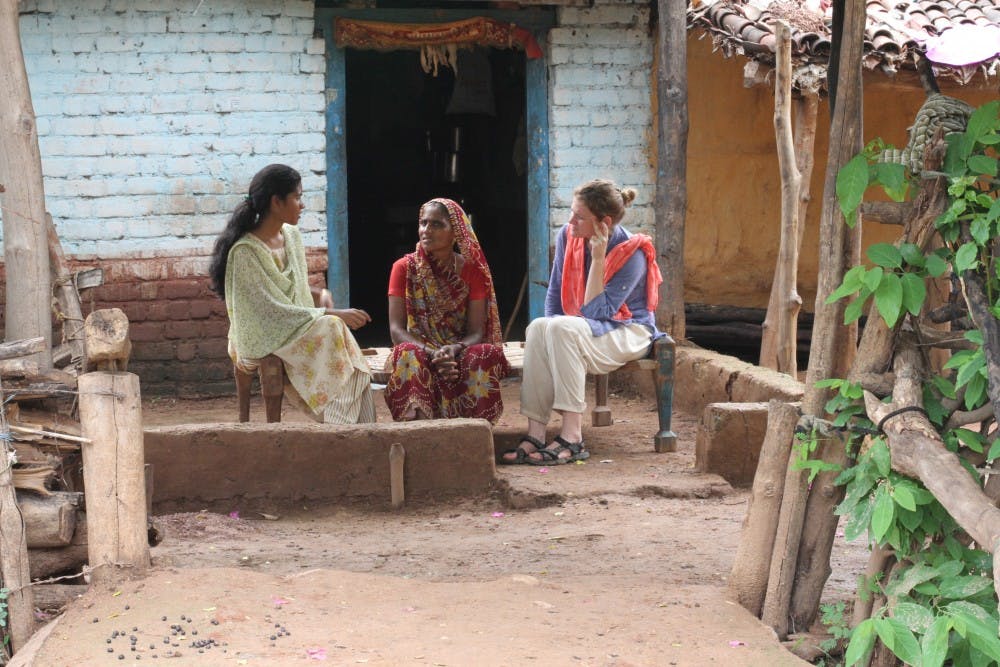A Penn fellowship is breaking down geographic and financial barriers that surround researching abroad.
The Sobti Family Fellowship is a new funding opportunity offered by the Center for the Advanced Study of India. It will provide an alternative to the Fulbright Grant for those who want to pursue a post-baccalaureate research project in India.
The Sobti family, of which Rajiv Sobti, who received his Ph.D from Penn in 1984, is a member, established the endowed fund i n perpetuity, which awards $10,000 annually to one student to pursue a project of their choice for a minimum of nine months.
The fellowship is available to any Penn senior or Penn alumni up to two years after their graduation. It provides financial support for applicants who are interested in researching the development of modern India.
The idea for the fellowship grew out of the familiar senior year “panic” of students who have taken advantage of CASI’s programs while at Penn but are unsure of how to return to India after graduation, Deputy Director of CASI Juliana Di Giustini said.
Christina Wu, a College senior and CASI Student Programs assistant, who was also a former photo manager at the Daily Pennsylvanian, understands the yearning for post-baccalaureate research opportunities abroad. She participated in a three-month-long summer internship in India through CASI, and noted that while she was there, she became “interested in certain aspects of the experience and wanted to go back and pursue [them].”
She added that prior to the Sobti Family Fellowship, it was difficult to gain ownership of a post-baccalaureate project of this sort outside of receiving a Fulbright Grant.
Aparna Wilder, the Student Programs and outreach manager at CASI and a 2002 College graduate, recalled that when she was an undergraduate student hoping to do research in India after completing her studies, the only option was to “apply for a Fulbright and hope for the best.”
However, the Fulbright Grant is extremely competitive since it is open to all American nationals who would like to go abroad and foreign students who would like to study in the US, narrowing the chances for Penn students to conduct their own research internationally.
The Sobti Family Fellowship, in contrast, is exclusive to Penn graduates. Unlike other fellowships, it will grant a unique liberty to the selected fellows, who will investigate a question of their own.
“There’s nothing quite like this [at Penn],” Executive Director for Education and Academic Planning in the Office of the Provost Rob Nelson said. While the Thouron Award, which was recently granted to four students, grants funds for graduate study in the United Kingdom, no Penn-exclusive fellowship has allowed participants to pursue independent research outside of a degree program prior to the Sobti Family Fellowship.
Applicants must submit a research proposal and connect with an India-based institution with which they will collaborate while abroad.
The application for this fellowship can be found on CASI’s website and is due by March 17. An online information session will be held via Adobe Connect today at 4:00 p.m., and an in-person session will be held in Houston Hall on March 3 at 3 p.m.
The fellowship marks the third type of funding opportunity available to Penn students and alumni through CASI, which also offers research funding and internships. It is also the longest term project available through CASI.
Wilder recognized the growing interest in working abroad among Penn students, and said that CASI was “feeling that demand and students are creating that demand for each other.”
Wu hopes that the fellowship will help “solidify [her] vision” of the future.
“I’m at a point where I’m trying to figure out what direction to take my professional career. I want to establish a vision before I enact a way to get to that vision,” she said.
Although she interned in India previously, she acknowledged that a fellowship would require her to establish herself on her own without a community of Penn students traveling with her, a skill “important to developing yourself in your 20s.”
A previous version of this article incorrectly said that Rajiv Sobti was a 194 College alum. Sobti received his Ph.D. from Penn in 1984. The DP regrets the error. This article was also updated to reflect that the fund for the fellowship is endowed in perpetuity.



